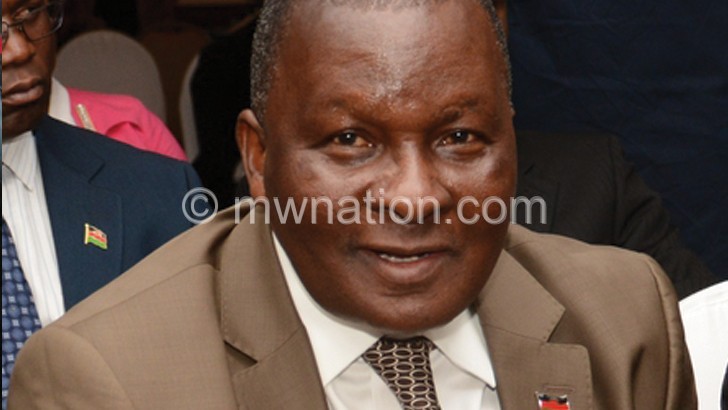Dausi apologises to people with albinism
Minister of Homeland Security Nicholas Dausi has bowed down to pressure and apologised to people with albinism (PWA) for his public utterance that atrocities facing them were yet to reach levels warranting State House vigils or seeking asylum abroad.

The minister’s apology made at an impromptu media briefing at his office in Lilongwe yesterday came amid pressure from Amnesty International, Association of People with Albinism in Malawi (Apam), civil society organisations (CSOs) and opposition Malawi Congress Party (MCP), among others, for him to withdraw his remarks.
Yesterday, Dausi, who sounded unapologetic last Wednesday, said he regretted his statement. Thereafter, he refused to take any questions from journalists.
Reading from a prepared statement, he said: “I have decided to unconditionally apologise for the remarks and; hence, withdraw them.
“I truly regret that the meaning which I had intended at that briefing did not come out as it was. I sincerely regret. I personally want to assure all the persons with albinism that I am equally concerned.
“My ministry and I, personally, fully appreciate the pain, anguish and fear the abductions and killings of PWA have caused among Malawians.”
But Apam president Overstone Kondowe has described Dausi’s apology as cosmetic, suggesting that it was possible he has acted out of pressure.
He said Apam expected the minister to formally apologise in writing to the association and not only through the media.
Said Kondowe: “Apam is one of the aggrieved parties. It was our hope that he will pen us for what he said. He is failing to admit he was wrong by trying to blame it on people that they got him wrong.
“Why has it taken him long to apologise when all along he has been in various forums justifying his stand? We feel it’s pressure that has forced him to do so.”
The Apam president also said Dausi’s apology was not enough for his association to get back on board the Presidential Task Force on PWA it pulled out from last week in protest over the minister’s remarks. He said Apam will only return to the fold after bodies of 14 missing PWA are recovered and until government provides funding for the implementation of the National Action Plan on PWA.
During the news conference where he jointly addressed with Minister of Information and Communications Technology Henry Mussa and Inspector General of Police Rodney Jose in Lilongwe last Tuesday, Dausi said: “When they say they want to seek asylum elsewhere, do they want to insult government? Seriously? If they are listening to us, will they insult government?
“These are things coming from homes where parents are selling their biological kids and they say we are facing challenges here?”
Reacting to Dausi’s apology, Human Rights Defenders Coalition (HRDC) chairperson Timothy Mtambo, while applauding the gesture, questioned the timing, saying it had taken the minister long to acknowledge his mistake.
In a related development, the Catholic Commission for Justice and Peace (CCJP) has joined HRDC in endorsing the PWA march and vigils at Kamuzu Palace in Lilongwe from March 6 to 8 to petition President Peter Mutharika and demand a commitment to the safety of people with albinism.
In a statement signed by its national coordinator Boniface Chibwana, CCJP said PWA have Malawi as their home; hence, no excuse for failure by duty-bearers to holistically deal with attacks, abductions and killings of the vulnerable group.
In The Nation edition of February 25 2019, Apam said it had turned down two invitations to meet the President before their protest vigils.
Instead, Apam insisted that its entire membership will only meet the President during the planned vigils to demand a commitment to the safety of people with albinism.
Malawi is experiencing a resurgence of attacks against persons with albinism, with two fatalities and three abductions since 31 December 2018. Two of those who were abducted were later rescued by community members, one remains missing.
Since November 2014, the number of reported crimes against people with albinism in Malawi has risen to 152 cases, including 25 murders and more than 10 people missing, according to Apam.





